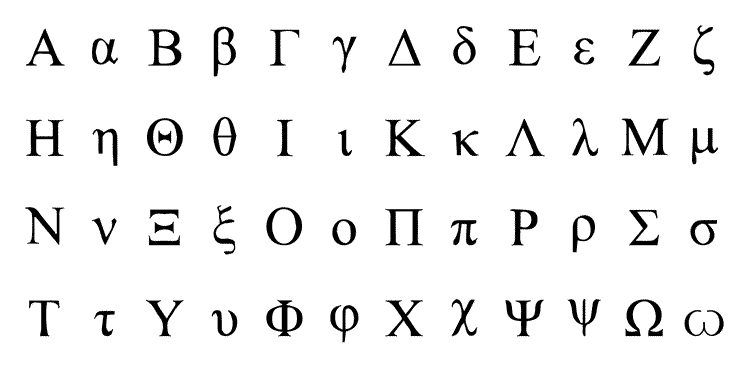
This article originally appeared at Locke In Your Success.
Anyone who’s looked at my trading style can clearly see I’m always short volatility. This often brings up the question, “Aren’t you scared that a rise in volatility is going to cause a loss?”
Scared? Not at all, but I am concerned. It’s true, at any moment something could happen that causes a huge volatility increase and yes I may indeed take a loss on a trade. I don’t like losses but if that happens, so what? Losses are part of trading and I’m aware of that risk when I go in. Therefore losses are included in my cash flow projections and do not present a problem.
What scares me is the traders who assume they are immune to volatility just because they’re in a calendar or diagonal.
Just because a position is posting a positive number in the Vega column doesn’t mean that an increase in IV isn’t going to hurt the position. In fact many times my negative Vega positions will outperform calendar and diagonals of equal size even in a down market, even with a significant IV increase.
For example, if we take a look at the negative Vega 1090 Butterfly that I entered on September 26, we can see that Thursday morning, when IV was at its highest, the position was up about $2000.
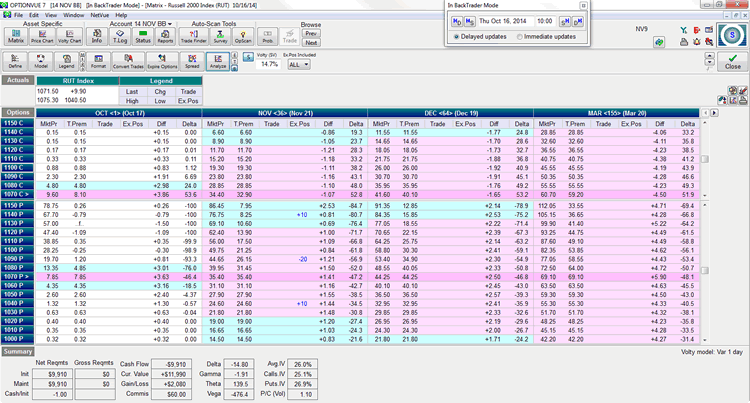
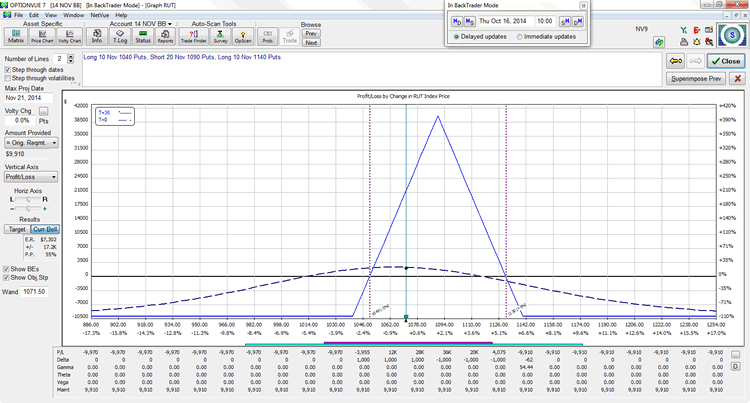
If we were to enter a positive Vega calendar centered at 1090 of equal risk (about $10,000) at the same time, the calendar, despite its positive Vega would actually be down $63.
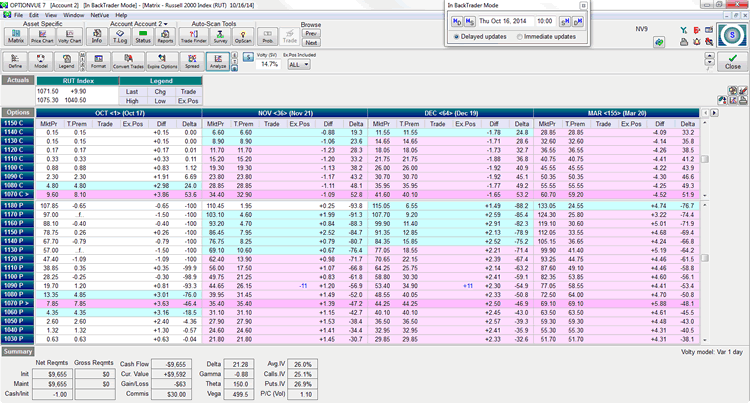
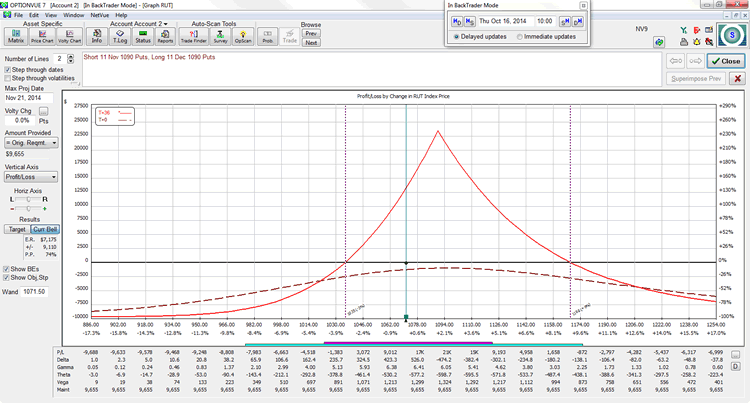
Why is this?
How could a negative Vega trade provide better protection than a positive Vega trade?
When we’re dealing with a calendar or a diagonal, we have two different kinds of Vega. There’s front month Vega which is going to be negative, and back month Vega which will be positive. The value change of the total position, from a Vega standpoint, is not determined by total market volatility but rather by the change in volatility of the front month vs. the back month.
When we get a sharp rise in market IV, the front month usually reacts quickly and the back month much more slowly. This creates a loss of value in the calendar even though it is technically Vega positive.
That said, eventually, the back month IV “sometimes” catches up and brings the value back. Unfortunately, by the time that happens it’s often too late because we’ve already exceeded our risk numbers or had to move the position.
The reality is that if you’re going to be a positive Theta trader, you will be at risk of a huge volatility increase and that risk is often increased with a composite positive Vega trade such as a calendar of diagonal.
This is just another example of why simply knowing the Greeks of your position is not enough. To learn more about how to properly evaluate complex options positions visit www.lockeinyoursuccess.com
Trade well!
John Locke

